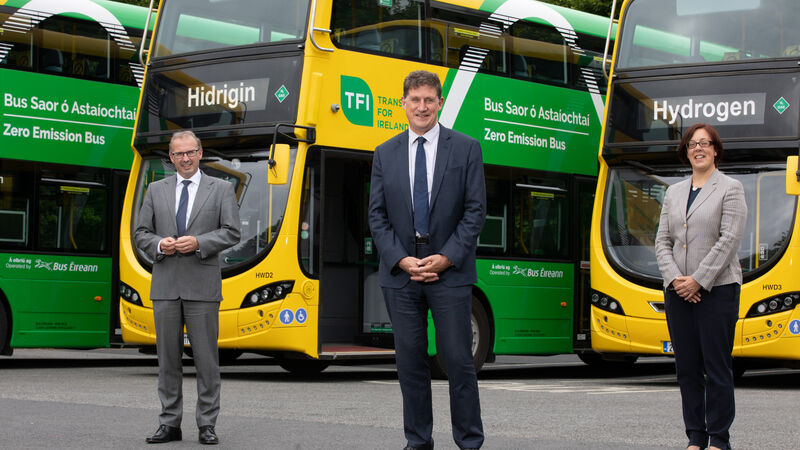Regulations aimed at phasing out petrol and diesel-powered public transport are 'vital'

Stephen Kent CEO, Bus Éireann; Minister Eamon Ryan; and Anne Graham, CEO, NTA; with the three recently purchased hydrogen-fuel-cell-electric double-deck buses by the NTA and will go into service next week on Bus Éireann’s route 105X, which runs between Dublin and Ratoath, County Meath. Pic: Naoise Culhane
New regulations aimed at phasing out petrol and diesel-powered public transport are "vital" and can become a motivator for privately-owned fleets to follow suit, a transport expert has said.
Dr Brian Caulfield, Trinity College Dublin associate professor of civil, structural and environmental engineering, hailed the new laws which give effect to the EU’s Clean Vehicle Directive.
CLIMATE & SUSTAINABILITY HUB













